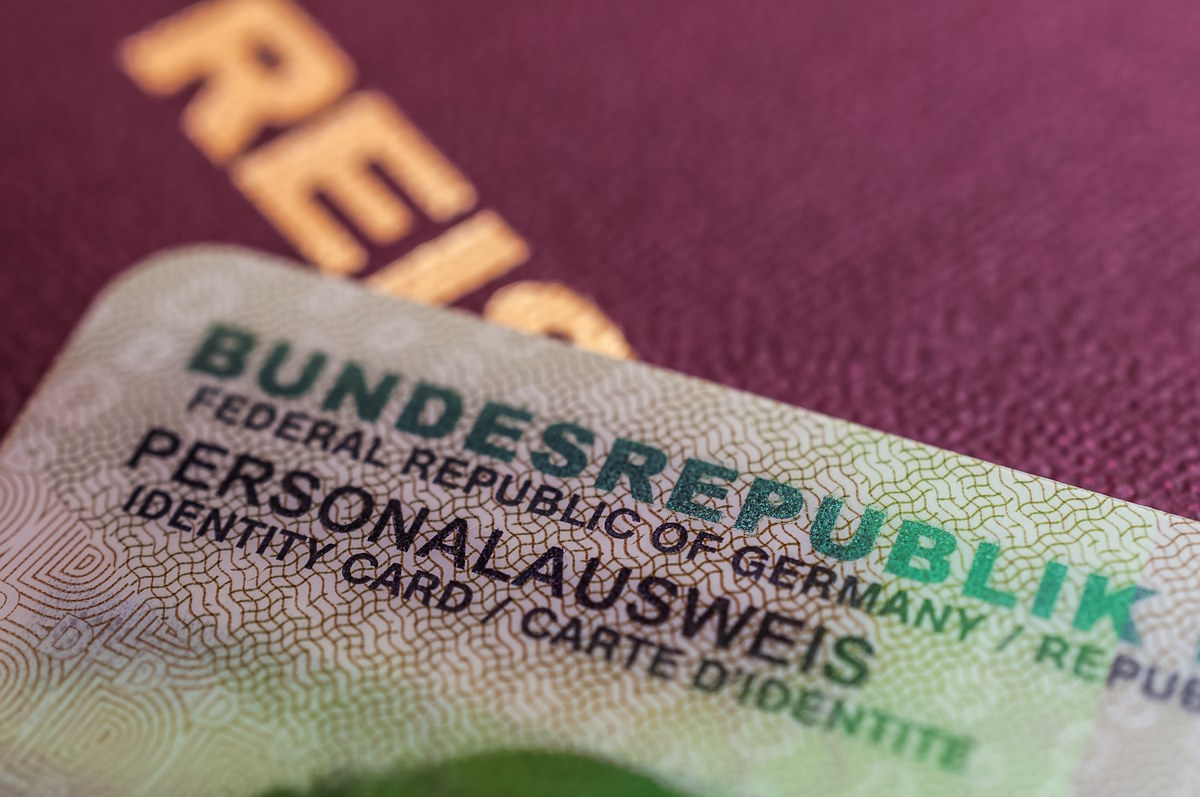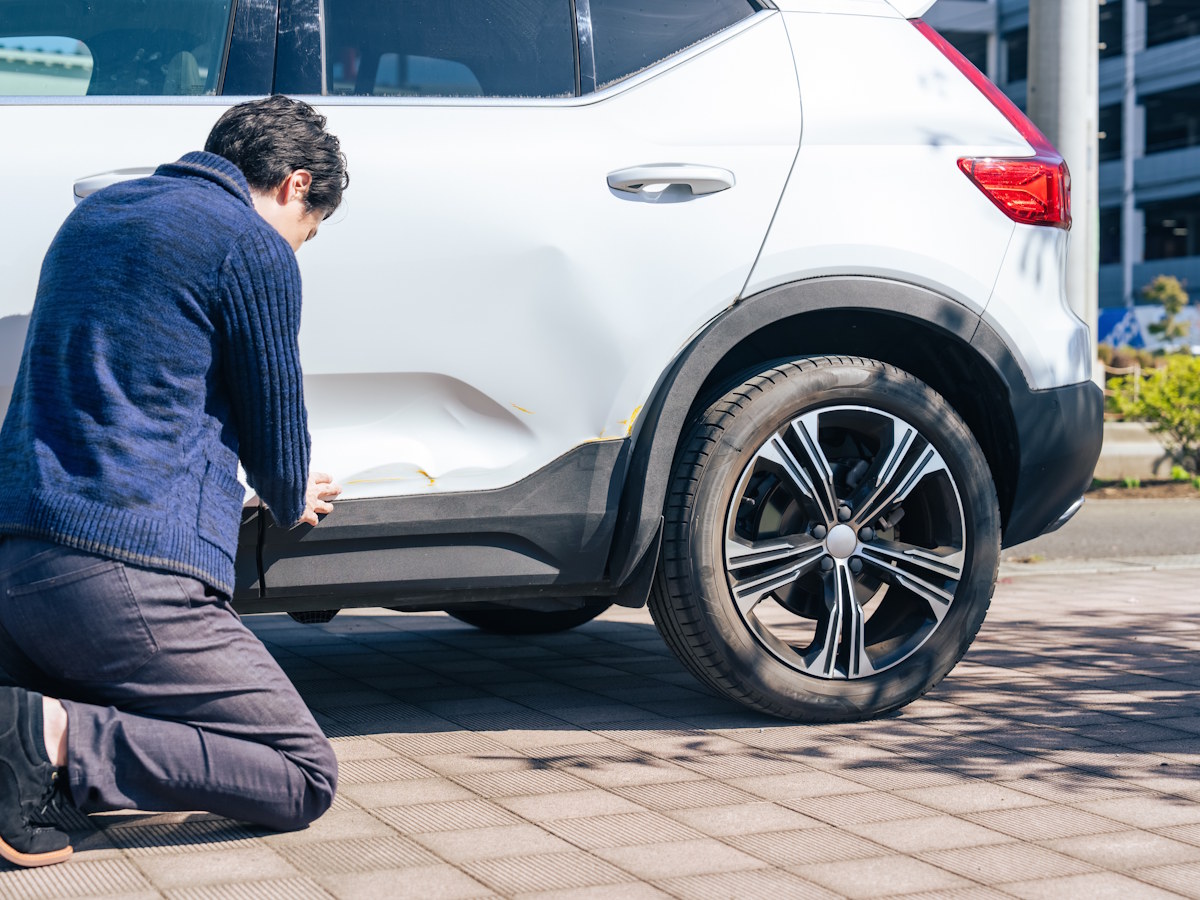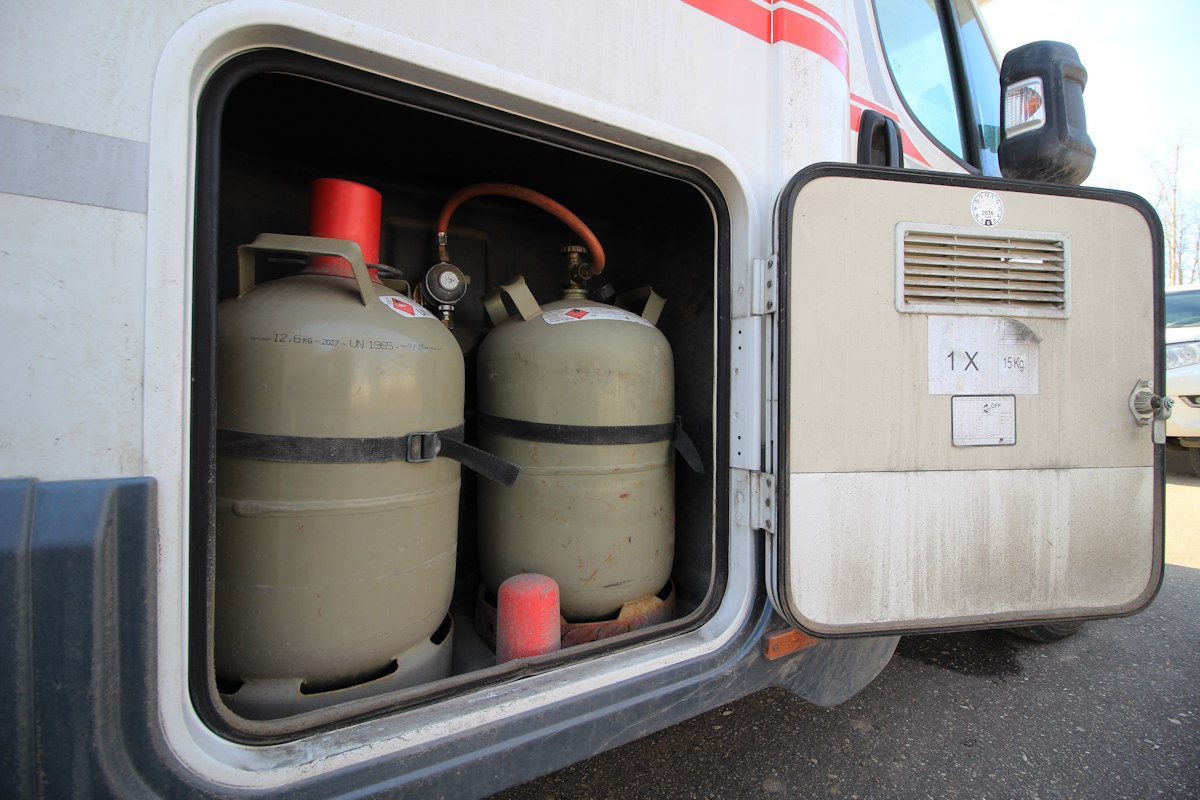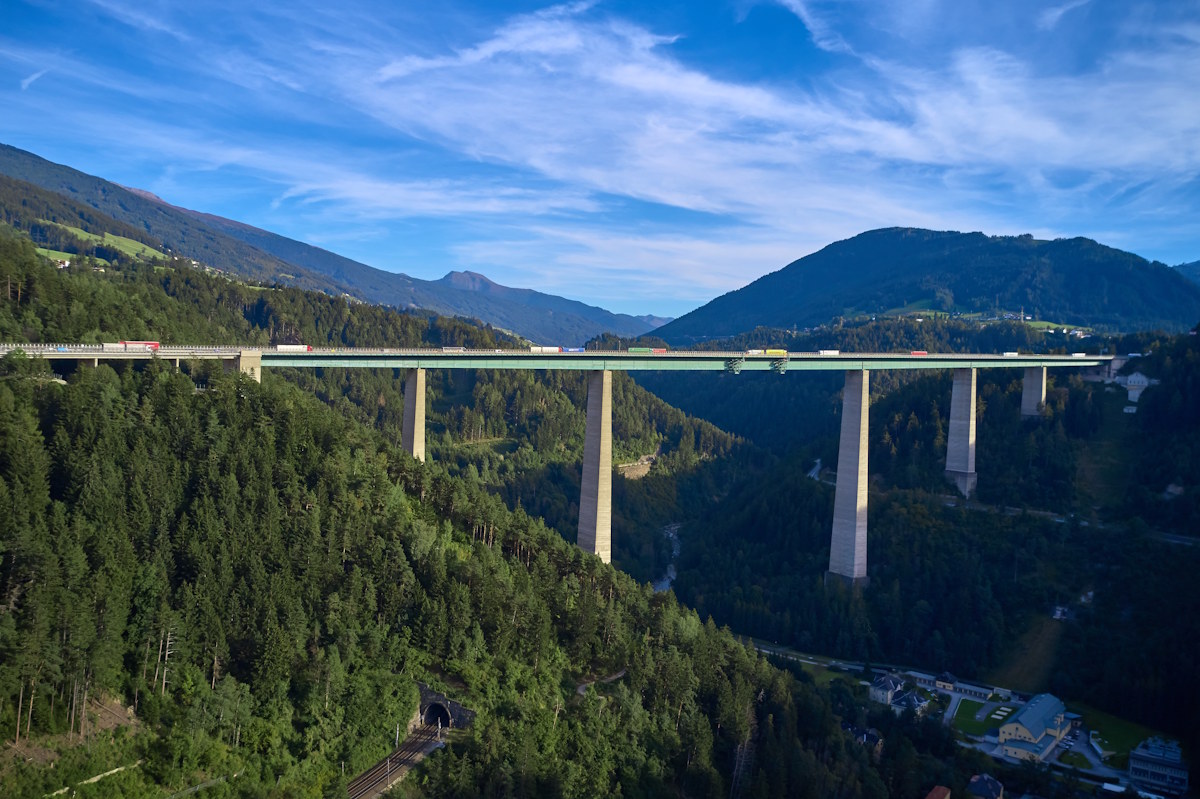by Florian König, maut1.de - 10 December 2024
Every year, there are various changes and innovations to the rules and laws that drivers have to observe on roads and motorways in Germany and the EU in order to avoid unnecessary stress, trouble and costs.
We at maut1.de have summarised the most important topics for you in our blog so that you can start the new year 2025 well informed!
Exchange of old driving licences: Which age groups need to take action
In order to make driving licences more standardised and forgery-proof throughout the EU, the pink or grey paper licence will soon be a thing of the past: From 19 January 2025, no one born after 1953 will be allowed to use them on the road.
If you have not yet done so, you should take care of the exchange as soon as possible, as it can take more than 2 weeks from the application to the receipt of the new driving licence.
After all, drivers of a car, motorbike or motorhome who continue to drive with an old driving licence are not committing a criminal offence, but are "only" subject to a fine of 10 euros.
Professional lorry and bus drivers, on the other hand, need to be careful here and should urgently take care of the replacement!
Petrol prices will rise due to the next stage of the CO₂ tax
On 1 January 2025, the next stage of the CO₂ tax will come into force, which has been intended to reduce environmental pollution since January 2021. This will increase the net price per tonne of CO₂ from the current 45 euros to 55 euros. For refuelling, this means that the price of petrol and diesel will rise by around 3 cents per litre compared to the previous year.
In order to halfway compensate for the additional costs caused by the rising CO₂ tax, the distance allowance, also known as the commuter allowance, has also been increased: since 1 January 2022, it has been 38 cents per kilometre from the 21st kilometre. For the first 20 kilometres, 30 cents can be deducted.

Passport and ID card only with digital passport photos
From May 2025, it will be sufficient to send a digital passport photo to the relevant authorities when applying for a new ID card or passport. The previously required biometric passport photos on paper will then no longer be permitted. The new, digital passport photos can be taken in a photo studio or in a machine on site.
From May 2025, passports and ID cards will also be able to be conveniently delivered by post, eliminating the need for a second trip to the authorities to collect them.
Driving licence directive: Digital driving licence and more
The already 4th EU driving licence directive, which has been under development for more than two years, is expected to bring a number of innovations in 2025. These include the introduction of a digital driving licence, changes to the minimum age for HGV and bus driving licences and the probationary period for new drivers.
The much-discussed mandatory health check-ups for senior citizens have been completely cancelled. However, as soon as the new EU driving licence directive has been finally adopted by the EU, it still has to be transposed into national law.
Reduction in bureaucracy: reporting obligation in hotels no longer applies
As part of the so-called "Bureaucracy Relief Act IV", the previous obligation to register for German holidaymakers in hotels in Germany will be abolished at the start of the new year 2025, meaning that registration forms with address data will no longer have to be filled out in future. However, all foreign guests will still have to complete the relevant registration forms.

Hit and run: Simplification of the report
Contrary to the opinion of some road users, a hit-and-run is not a trivial offence but a criminal offence. There will soon be changes to simplify the reporting of this offence, which may mitigate the penalty or even lead to impunity.
For example, the person responsible for an accident should no longer have to wait a long time at the scene of the accident for the injured party, but should be able to provide details of the accident directly to the nearest police station or digitally to a new reporting centre yet to be set up. However, an exact date for the implementation of this simplification has not yet been set.
Automatic parking monitoring with "Scan-Cars“
In order to automate the monitoring of car parks and put a stop to notorious "illegal parkers", so-called scan cars have been under discussion for some time now.
These vehicles, which are equipped with video systems, are designed to monitor "stationary traffic" as they drive past and take pictures of parked vehicles in order to check whether the vehicle has a parking authorisation or a parking ticket. However, there is still no legal basis for this.
There is also still no legal basis for the automatic detection of the use of mobile phones and smartphones while driving, so-called mobile phone flashers, which are prohibited for safety reasons and have already been tested in pilot projects in Germany and abroad.
Next stage of the Euro 6e standard comes into force
Until the Euro 7 standard comes into force, the EU Commission has published a further tightening of the existing Euro 6 emissions standard: Euro 6e.
As an interim step towards the planned Euro 7 standard, the Euro 6e emissions standard for passenger cars was introduced on 1 September 2023. On 1 January 2025, the second stage of the Euro 6e standard will be mandatory for newly type-approved passenger car models. It will then apply to newly registered vehicles from January 2026.
With the third Euro 6e stage (EC), the utilisation factors will be further adjusted. This will be mandatory for newly type-approved passenger car models from 1 January 2027 (from 1 January 2028 for newly registered vehicles).
Traffic offences abroad: news on tracking
Important changes to the amendment to the EU directive from 2015:
- All letters from the authorities in fine proceedings must be written in a language that the offender can understand.
- A fine from another EU country must be served within eleven months.
Furthermore, the activities of private debt collection service providers in the prosecution of traffic offences will be prohibited in future.
The new EU directive is due to come into force at the end of 2024, and national implementation in the respective EU countries must then take place within 30 months.

Check gas systems in caravans every 2 years
All caravans and motorhomes with an LPG system must be inspected by an expert every two years from 19 June 2025. For all newly registered vehicles, this inspection must take place before the vehicle is put into operation for the first time.
The background to the new regulation is accidents during cooking, cooling and heating caused by leaks and defects in the gas system, in which gas escapes unnoticed and/or explosions have occurred or may even occur.
Anyone who fails to comply with the new inspection obligation for caravans and motorhomes is committing an offence and will be fined between 15 euros (for more than 2 to 4 months), 25 euros (for more than 4 to 8 months) and 60 euros (for more than 8 months), depending on how long the deadline is exceeded.
Mega construction site at the Brenner Pass until 2030
Preparations have started this year, but from 1 January 2025 the Brenner motorway will become the Mega construction site: The busy Luegbrücke bridge in the Wipptal valley urgently needs to be renovated for safety reasons.
To achieve this, a single lane of traffic in both directions is planned for several years on the 55-year-old, actually three-lane bridge, which will in all likelihood lead to considerable delays when travelling to or from Italy.
In order to prevent even greater traffic chaos, on busy travel days, e.g. during holiday periods, traffic will once again run in two lanes in both directions.
This doubling of lanes is planned for around 170 days in 2025 by means of flexible traffic routing - either northbound or southbound, depending on demand.
Traffic jams on the Tauern motorway due to tunnel renovation
There will be major obstructions on another important connection to and from the south until June 2025: the Tunnel renovation on the Austrian Tauern motorway A10 (Salzburg Villach). On a 14-kilometre section between Golling and Werfen, five tunnels that were built in the 1970s are being renovated at the same time.
The five ageing tunnel tubes will then be closed alternately in each direction for the necessary refurbishment. Traffic will then only be routed through one free tube in one lane with two-way traffic.
In addition, a 600-metre-long section of a bridge is being renewed in a new process, for which further construction site-related restrictions on the Tauern motorway are to be expected until 2027.
Italy: Higher penalties for traffic offenders
Travellers to Italy should inform themselves about all changes to traffic law before travelling to the popular holiday destination in 2025, because due to a reform of the "Codice della Strada", it is expected that from the beginning of 2025 Traffic offenders in Italy punished much more severely. Especially driving under the influence of alcohol or drugs can result in higher fines or penalties.
Other traffic offences such as running a red light, using a mobile phone/smartphone while driving and speeding in and out of town will also become more expensive, which can also lead to driving bans.

Austria: Vignette prices continue to rise
In our neighbouring country Austria, motorway journeys will also become more expensive in the new year, as the fees for the annual vignette will rise for the first time to 103.80 euros instead of the previous 96.40 euros.
For travellers who travel less frequently in Austria, the prices for vignettes will increase as follows: 1-day vignette 9.30 euros instead of 8.60 euros, 10-day vignette 12.40 euros instead of 11.50 euros and 2-month vignette 31.10 euros instead of the previous 28.90 euros.
France: Speed cameras will soon also record mobile phone offences using AI
Please tell me, there will soon be "super speed cameras" that can record several traffic offences at once?
Yes, there will soon be such "super speed cameras" in France: the French government is planning to upgrade some of the approximately 4,000 speed cameras nationwide.
In future, in addition to the maximum permitted speed, they will also be able to monitor the safety distance, compliance with the seatbelt requirement and the ban on mobile phone use at the wheel and automatically record offences.
The new radar units will use artificial intelligence for the extended detections. However, it is not yet known exactly when the new AI speed cameras will be operational in France.
For holidaymakers: entry permit required for Great Britain
Anyone wishing to travel to the UK in the new year (on business or on holiday) will need an electronic travel authorisation (ETA) in addition to their passport from April 2025.
When applying for this ETA online, data on the persons travelling must be provided and questions about the planned trip must be answered. There is also a processing fee of 10 pounds (approx. 12 euros).

.webp?ts=1719437796)